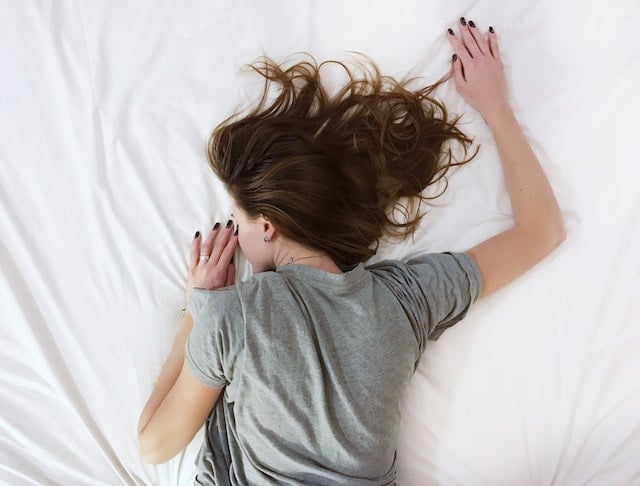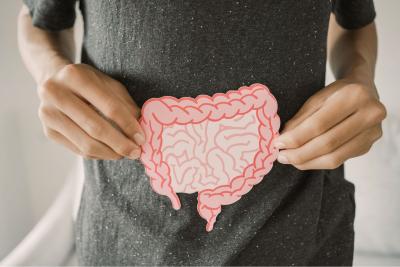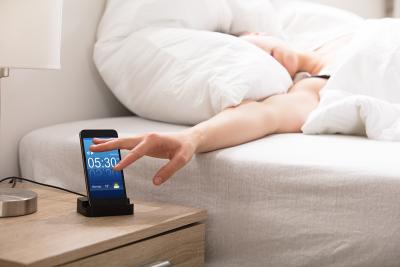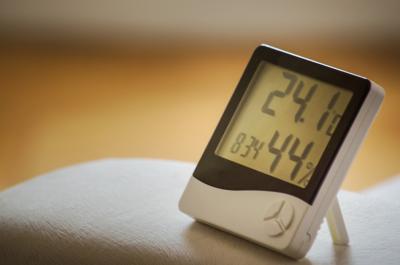You've probably heard the term REM before, and we're not talking about the American rock band R.E.M. REM, or Rapid Eye Movement, is an important stage of sleep associated most strongly with dreaming and memory consolidation.
What is REM sleep exactly? Some people may already know about REM or at least the concept of it, and it's quite famous for being the part of your sleep where you dream. But REM is more than just dreaming, as lovely as we all think dreaming is, as it's also an important part of your brain development.
So, given how important REM sleep is, we thought that we'd take a much deeper look into this topic to help you understand exactly why it is important, why you should be trying to get plenty of REM sleep, and even some tips on how to improve your REM sleep!
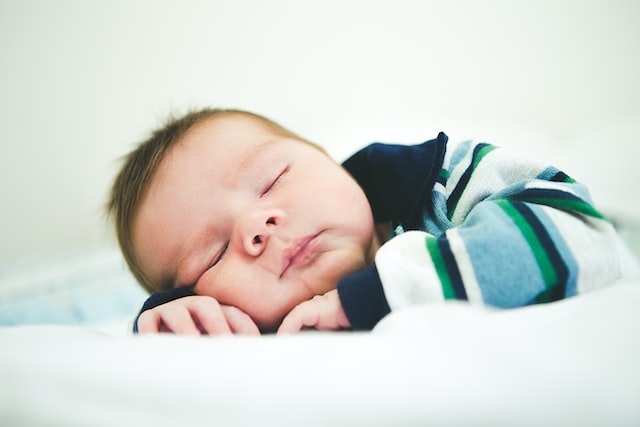
What is REM?
Sleep is something that everyone does, and it's (arguably) the best time of the day, when you get to snuggle up in bed and drift off. But have you ever thought about what happens inside your brain when you go to sleep? To understand what a REM cycle is, you need to know what goes on in your brain during sleep. Many people often think of sleep as switching your brain off for a few hours, but in reality, it's the exact opposite!
Whilst your conscious self isn't aware, your brain takes that time to speed up many processes in your body. This is the time when your body can focus on repairing itself, and there's evidence that lack of sleep can cause an increase in health risks. Regarding REM sleep, it's important to note that we undergo many sleep stages during the night, and they will repeatedly cycle between each other.
The first stage of a REM sleep cycle is non-REM sleep, and around an hour or so after you've fallen asleep, your brain will shift into REM sleep. You'll be in this stage before cycling back to non-REM sleep. As the hour's pass, the time your brain will spend in REM sleep will get longer and longer.
It's important to note that the repair we mentioned above happens during non-REM sleep when you're in a very deep sleep with slow brain waves. You'll find that it's harder to wake someone up from this stage of sleep!
During the REM sleep cycle, your brain is more active again and this means that you'll start to dream. Whilst you might think dreams are just something your brain does whilst you sleep, they're essential as they're part of how your brain processes emotions! Alongside dreaming, you'll find that REM sleep causes a loss in muscle tone, which means that you're unable to physically move, alongside irregular breathing and a rise in your heart rate.
There's no need to worry, though! This is completely normal and is just a part of this stage of sleep. Given that you'll be happily sleeping, it's also not something you'll notice, and you'll do this multiple times throughout the night.

Why is REM sleep important?
So, you might be wondering why we think REM sleep is important. That's because during your sleep cycle, non-REM sleep is when your body focuses on healing physical issues, but REM sleep is when your brain starts to process things.
As mentioned above, you begin to dream during the REM cycle, and this is when your amygdala is active during REM sleep. This is the part of the brain that processes emotions, which is why you might find that if you're feeling a bit stressed or anxious, your dream may correspond with this.
As well as this, REM sleep is also when your brain works through processing everything you've learnt in the day. This is why babies and children will experience REM more than someone older because their brains have lots of new things to take in!
Alongside figuring out which things are important to keep, your brain also needs to decide what things need to be deleted and forgotten - after all, you don't need to remember everything about your day!
All of this means that it is vital you get plenty of good REM sleep and you ensure that your REM sleep cycle can work as normal. Missing out on stages of sleep can cause potential issues for you in everyday life, as lack of REM sleep can lead to difficulty concentrating and poor memory - which isn't a surprise given how this is the stage of sleep which focuses on the brain!
How many hours of REM sleep do you need?
The right amount of REM sleep purely depends on the person, as the younger you are then, the more REM sleep you will need. This is why babies will spend so long sleeping - because they're having lots of lovely REM dreams! But as you grow older, you'll need less of it, which is why older people need much less sleep in comparison.
Given that there is no right or wrong answer, we can't specify how much REM sleep you'll need, but it's important to make sure you can go through all the stages of sleep during the night. If you're curious about how much REM sleep you get, then technology can help - tools such as smart watches can monitor your body's response during the night to give you an idea of how well you're sleeping.
This means you can see how much sleep you're getting and adjust your schedule accordingly. If you're struggling with insomnia or sleep deprivation, then you'll want to try and find ways to improve your sleep. Maybe you need a new mattress to help you stay comfy through the night, or you might want to consider keeping a sleep diary to keep track of how well you're sleeping, or check out our 8 top tips to get a good night's sleep!
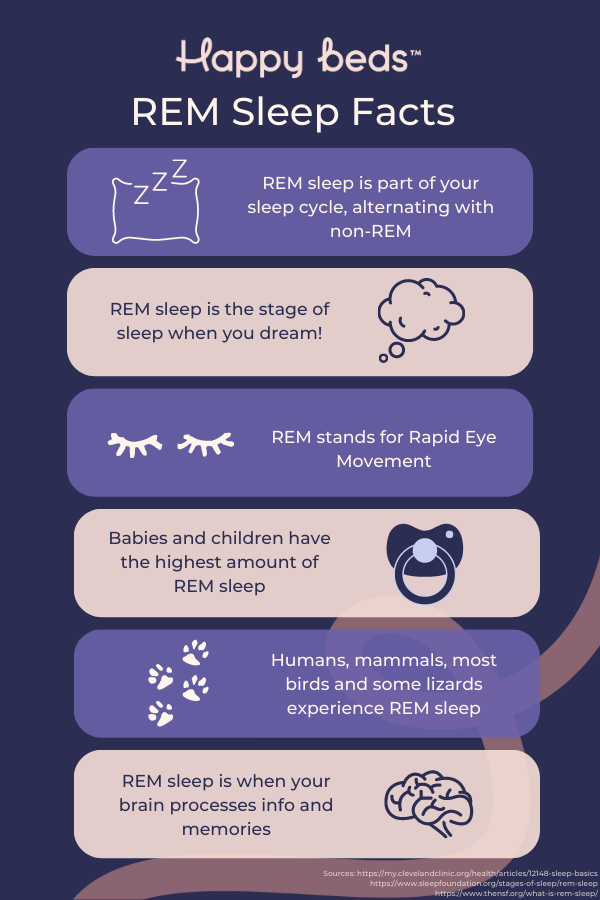
Do you get plenty of REM sleep?
So, now that we've discussed what REM sleep is, the stages of sleep, and even why experiencing REM dreams are good, consider whether or not you get plenty of REM sleep! If you're someone who experiences REM dreams frequently, then you might be curious as to what your subconscious mind is trying to tell you about your emotions or feelings.
Why not check out our blog on common nightmares and their meanings if nightmares plague you? Or if your dreams are a little bit sweeter, then we've explored plenty of REM dreams in our blog on dream meanings to help keep you occupied.
Do you have any great sleep tips that help REM sleep? Why not tell us about it on our Instagram, Twitter or Facebook? We'd love to hear what helps you sleep better!


